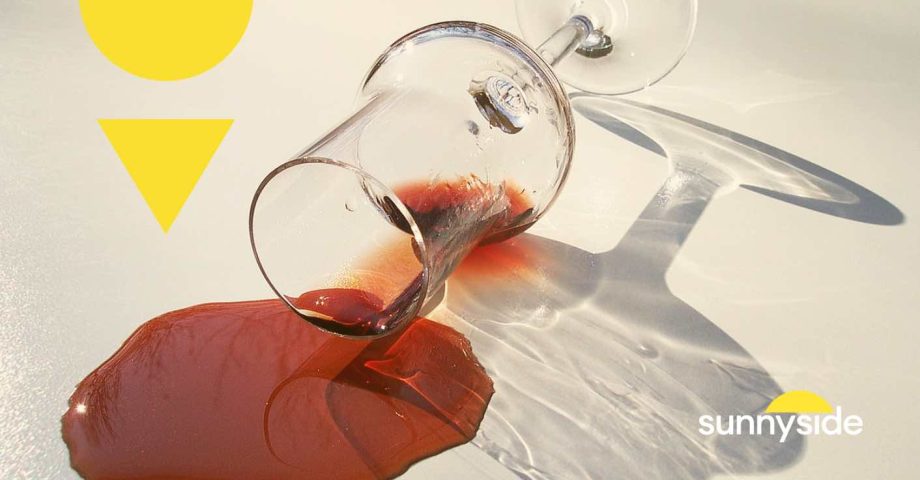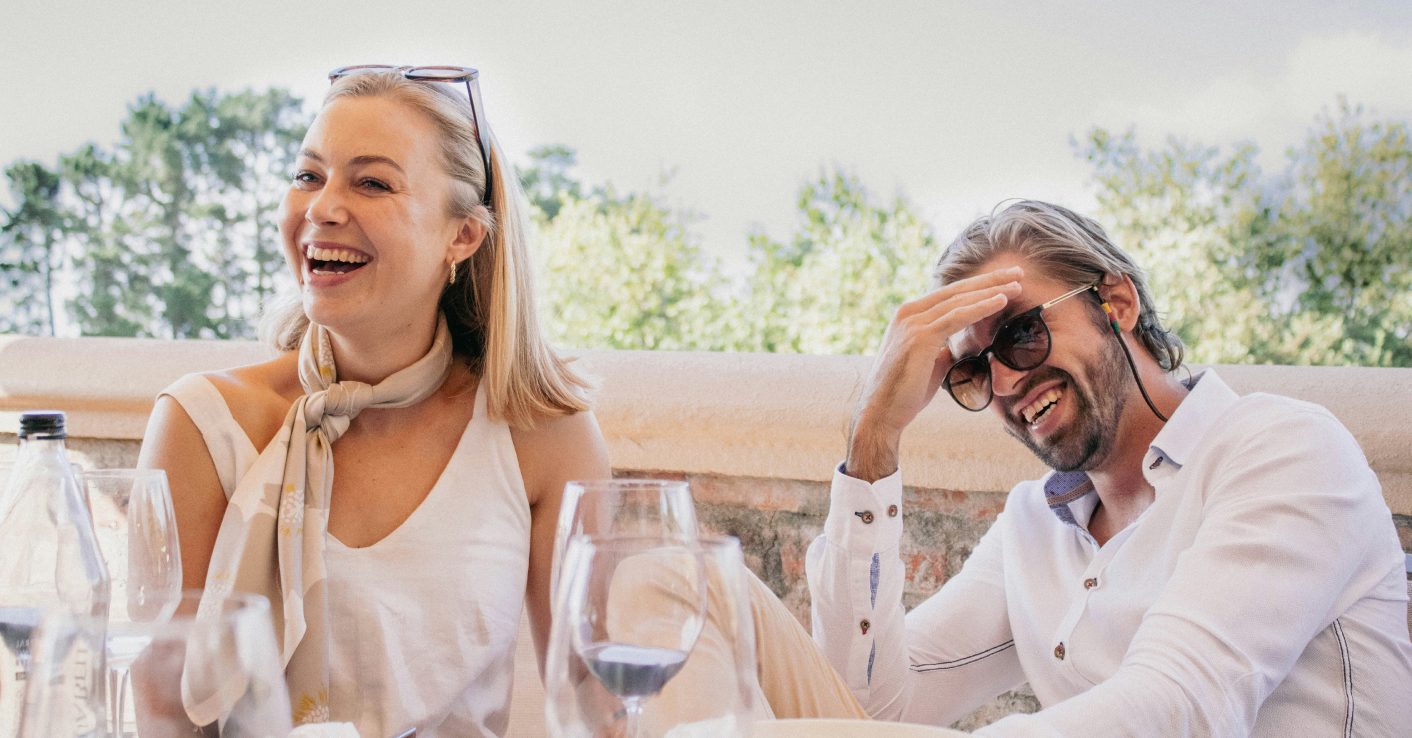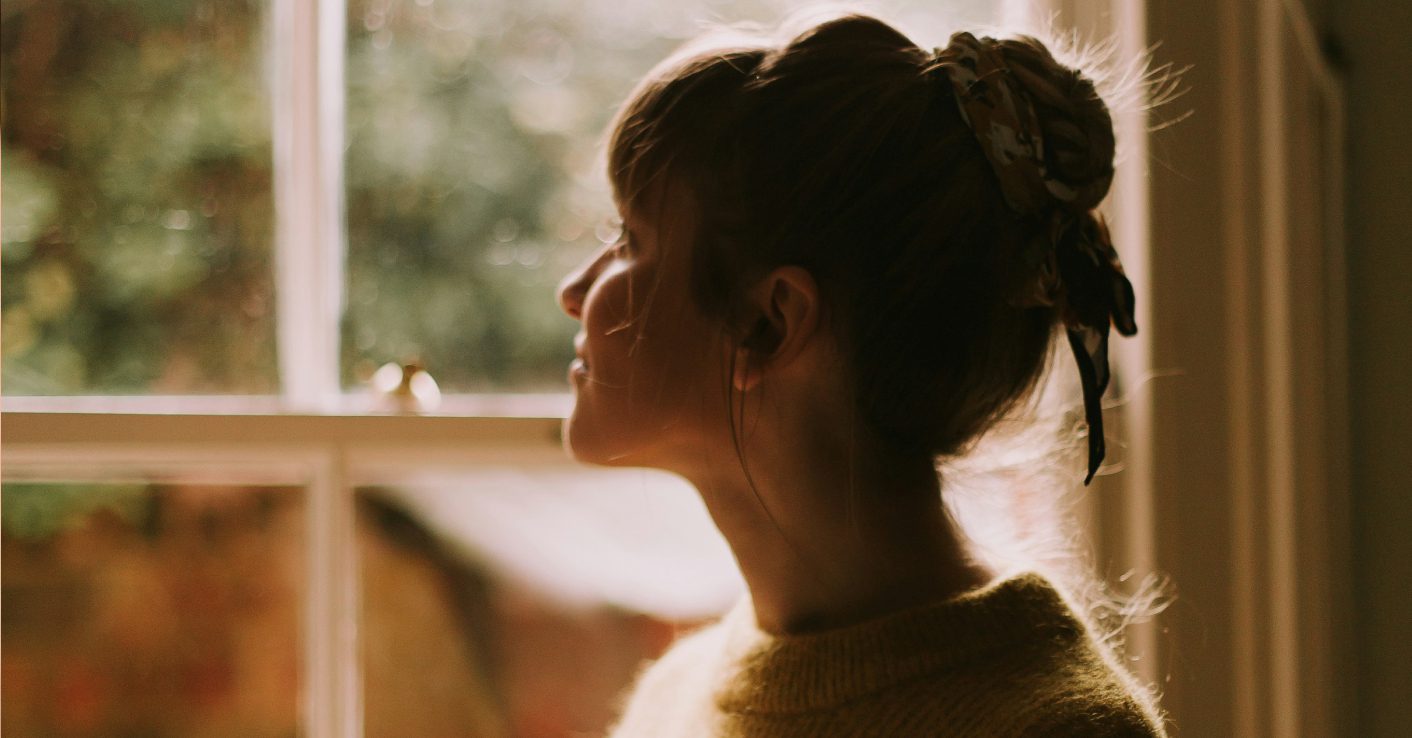Last Updated on November 20, 2023
Do you automatically reach for alcohol after dinner? Maybe your subconscious response to a stressful day at work is to pour yourself a couple of glasses of wine.
Drinking alcohol in itself isn’t a bad habit. However, when your drinking habits affect your work, studies, finances, or relationships, it could be due time to change them.
If you’ve tried breaking a bad habit before, you’d understand how difficult it can be. Detrimental drinking habits can be even more challenging to kick because alcohol has the ability to alter your emotional state. Drinking can reduce stress and anxiety as well as increase happiness and relaxation, which makes you feel good [1].
Because of this, you might be struggling to curb your alcohol consumption and build a healthier relationship with alcohol.
That said, it is possible to break unhealthy drinking habits. According to science, replacing bad habits with good ones is one of the most effective ways to break them [2].
Sticking to your long-term goals becomes much easier once a good habit is formed. In fact, people who succeed in steering their behavior toward their long-term goals tend to rely on good habit formation [3].
This is why habit replacement is one of the most powerful behavioral change techniques to leverage if you wish to cut back on your drinking.
In this article, we’ll explore how you can use 8 different habit replacement methods to drink mindfully and reduce your alcohol consumption.
Give mindful drinking a try1. Have a Healthy Wind-Down Routine
Alcohol can help people fall asleep faster at night, so it has become a common method of winding down before bed. However, alcohol has an overall detrimental effect on sleep, as it can reduce sleep quality and duration and increase sleep disturbances [4].
If you wish to improve your quality of sleep and cut back on your daily alcohol consumption, consider building a healthy wind-down routine that helps you decompress after a hectic day.
Think of what helps you relax. Do you enjoy hot baths or listening to calming music? Maybe you’ve noticed that breathing exercises or simple stretching help release tension.
Once you find activities that invoke relaxation, take the initiative to build your wind-down routine around them.
By consistently incorporating stress-relieving activities into your evening routine, you may no longer need alcohol to help you fall asleep at night.
Build healthier drinking habits2. Replace Stress Drinking with a Self-Care Plan
Research has shown that stress, anxiety, sadness, and frustration are highly associated with the urge to drink [5]. One way to break the habit of stress drinking is to replace it with a self-care plan.
Instead of drinking the next time you’re stressed, find other ways to calm yourself down. This might look like soaking yourself in nature, spending time with your close friends or family, or diving into a new hobby.
Your self-care routine doesn’t have to be extravagant. Stick to simple activities you can consistently carry out whenever stress and frustration kick in.
Cut back on your drinking without the shame3. Suggest Activities that Don’t Involve Drinking
If you notice an uptick in your alcohol consumption during parties and events, you’re not alone. Social pressure and exposure to alcohol-related stimuli are two common trigger factors for drinking [5].
Instead of drinking, suggest activities that don’t involve alcohol, like hiking, dancing, going to a pottery workshop, or attending a fitness class with your friends. Alternatively, pick a different restaurant or hangout spot that does not serve alcohol.
Start your free trial4. Stop and Pause Between Drinks
Instead of immediately reaching for another glass of alcohol after finishing one, break that habit by slotting activities between your drinks.
For instance, you might want to strike up a conversation with a friend, hit the dance floor, or go on a short walk for a breath of fresh air. This will help you pace your alcohol consumption and prevent binge drinking.
Another strategy you can try is to alternate between alcoholic and non-alcoholic beverages. Having a glass of juice or water between your favorite tipples can help keep you hydrated and slow your drinking during a night out.
Take the quiz to build your drinking plan5. Keep Yourself Busy
Many people find themselves drinking out of boredom [6]. If you have this habit, try to find ways to keep yourself occupied.
Exploring new creative pursuits and picking up a new language or skill are some productive activities that can help steer your mind off drinking.
Learn tips to drink less6. Find a Non-Alcoholic Go-To Drink
Do you always have a drink in your hand during parties? Perhaps you rely on alcohol to feel more confident during social events.
If sipping on something while mingling around helps you feel more comfortable, try opting for a non-alcoholic beverage the next time around. Ask your bartender for a non-alcoholic version of your favorite cocktail or request a low-alcohol drink with your preferred flavor profile.
Learn tips to drink less7. Find Ways to Have Fun During Parties
The habit of overindulging during parties can be challenging to kick. Once you get caught up in the atmosphere of laughter, dance, and music, it can be hard to hold back.
However, you can still enjoy the night without having too much alcohol. Take the initiative to connect with friends, engage in meaningful conversations, participate in non-drinking party games, or help your host get the party going.
Try Sunnyside for Free8. Find Quick Distractions When the Urge Hits
Many of us habitually reach for a glass of alcohol whenever the cravings hit. Instead of giving in immediately to those drinking urges, try to buy your body as much time as possible to get over them. Once those cravings tide over, it will become much easier to resist the temptation to drink.
Some ways to distract yourself whenever you feel the urge to drink include:
- Reading a book
- Journaling
- Calling a friend or family member
- Taking a short stroll around the block
- Taking a hot bath
- Lifting weights
Remind yourself that this urge will ease on its own without you having to alleviate it with a drink.
Reduce drinking cravings with SunnysideHow to Effectively Replace Bad Habits With Good Ones
Breaking bad habits and replacing them with healthy and helpful ones will take time, self-compassion, and perseverance.
Here are some tips that can tilt the odds in your favor and give you a better chance at success:
- Start taking note of your cues and triggers. What causes you to crave alcohol? Do you tend to drink more when you’re stressed or anxious or when you’re at your favorite bar?
- Eliminate those triggers. Once you’ve pinpointed your triggers, try to minimize them as much as possible. Store your alcohol in harder-to-reach areas of your house, like your basement, or find another restaurant or bar that does not serve alcohol.
- Set goals and limits. Come up with an actionable plan that dictates how much you’re allowed to drink each day and which days are non-drinking days. Taking part in challenges like Dry January or Sober October can also be a great way to boost your commitment and motivation to cut back.
- Be consistent. Consistency is key whenever you’re trying to replace a bad habit with a good one. The good behavior must be repeated in that specific context each time so that it automatically becomes a habit over time [7].
- Find a supportive community. A mindful drinking community with the same goals and values can become a fantastic source of helpful tips and encouragement. Plenty of online communities foster a safe and non-judgmental environment for people to gain support and advice throughout their journey.
If you don’t see success right away, don’t get disheartened about it. Habit replacement takes time and patience. But once these healthy habits are in place, you’ll have the best chance at sustainably cutting back and controlling your drinking.
How Sunnyside Can Help You Change Your Drinking Habits
Sunnyside is a mindful drinking app that applies behavioral psychology strategies from habit-formation experts to set users up for success.
Through the app, you’ll be prompted to pre-commit to weekly action plans that determine your drinking limits and dry days. You’ll also be able to track your alcohol consumption and receive reminders to key in how much alcohol you’ve had. Additionally, the app provides access to real-life coaches who can give you personalized advice and support throughout your journey.
By consistently setting goals, measuring your progress, and tracking your drinking, you’ll be able to form healthier drinking habits that’ll sustain the test of time.
Get started with Sunnyside’s free trial today!
References
[1] Gilman, J. M., Ramchandani, V. A., Davis, M. B., Bjork, J. M., & Hommer, D. W. (2008). Why we like to drink: a functional magnetic resonance imaging study of the rewarding and anxiolytic effects of alcohol. The Journal of neuroscience : the official journal of the Society for Neuroscience, 28(18), 4583–4591. https://doi.org/10.1523/JNEUROSCI.0086-08.2008
[2] Adriaanse, M. A., Gollwitzer, P. M., De Ridder, D. T. D., de Wit, J. B. F., & Kroese, F. M. (2011). Breaking Habits With Implementation Intentions: A Test of Underlying Processes. Personality and Social Psychology Bulletin, 37(4), 502–513. https://doi.org/10.1177/0146167211399102
[3] van der Weiden, A., Benjamins, J., Gillebaart, M., Ybema, J. F., & de Ridder, D. (2020). How to Form Good Habits? A Longitudinal Field Study on the Role of Self-Control in Habit Formation. Frontiers in Psychology, 11. https://doi.org/10.3389/fpsyg.2020.00560
[4] Park, S. Y., Oh, M. K., Lee, B. S., Kim, H. G., Lee, W. J., Lee, J. H., Lim, J. T., & Kim, J. Y. (2015). The Effects of Alcohol on Quality of Sleep. Korean journal of family medicine, 36(6), 294–299. https://doi.org/10.4082/kjfm.2015.36.6.294
[5] Ghiţă, A., Teixidor, L., Monras, M., Ortega, L., Mondon, S., Gual, A., Paredes, S. M., Villares Urgell, L., Porras-García, B., Ferrer-García, M., & Gutiérrez-Maldonado, J. (2019). Identifying Triggers of Alcohol Craving to Develop Effective Virtual Environments for Cue Exposure Therapy. Frontiers in psychology, 10, 74. https://doi.org/10.3389/fpsyg.2019.00074
[6] Biolcati, R., Passini, S., & Mancini, G. (2016). “I cannot stand the boredom.” Binge drinking expectancies in adolescence. Addictive behaviors reports, 3, 70–76. https://doi.org/10.1016/j.abrep.2016.05.001
[7] Gardner, B., Sheals, K., Wardle, J., & McGowan, L. (2014). Putting habit into practice, and practice into habit: a process evaluation and exploration of the acceptability of a habit-based dietary behaviour change intervention. International Journal of Behavioral Nutrition and Physical Activity, 11(1). https://doi.org/10.1186/s12966-014-0135-7



